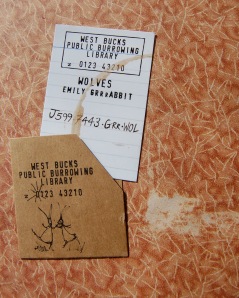I recently attended a conference entitled ‘Collaborative Approaches to Information Literacy’ hosted at MMU by the CILIP Information Literacy Group. The day comprised five presentations/workshops from librarians and practitioners working in IL. Below are some musings on some of the issues that I found particularly interesting/stimulating/worth pilfering.
What happens when your degree doesn’t make you fit for the workplace? An interesting story was told regarding an English Graduate who was going for media jobs. Are we teaching students to get a job or expand their knowledge? For me, we should be doing both, really and this is where IL comes into its own as it is a transferable skill that feeds into the workplace.
UoM talked about ‘clarity’; making students aware of what we already do, what their skills are and how they can transfer these into their wider life. Their ethos is to facilitate students into being what employers want, rather than just telling them what employers expect. They realised students waited until crisis point before asking for help and so their strategy is based around developing student skills to help them support themselves: essentially being independent learners.
They talked about the value to the session is in using prior knowledge (what do they already know) and exploring what happens after (where do they go with it?). Their focus is on positives: not about where the gaps in student skills are are but about positive improvement; no levelling – they wanted to open out to learning that might happen, rather than pedagogical learning. Also considered in the strategy is to promote the positives of referencing – it’s badged as joining a tradition hundreds of years old; the correspondence of the learned population was merely them holding up their research in the light of other’s findings. Essentially a form of gossip as it showed whom they had been ‘talking to’! Ergo, non-negative badging…
After the degree? We teach IL using Uni resources, but what happens when students go into the workplace and don’t have access to subscribed resources? ‘Outduction’ at UoD (Buxton) are sessions on how to use the knowledge and skills they have developed in three years at Uni, turning them into real world skills. Edge Hill’s ‘Steps to Success’ programme includes session on how to find information in the workplace, covering things such as how to adapt to the information environment in the workplace, finding and recognising credible information and accessing resources as an EHU alumni. The programme also includes sessions on how to promote yourself online and report and presentation writing skills.
So, there’s some very innovative work in IL out there. I like the idea of an ‘exit session’ like the outducting of UoD. I’d be interested in taking something like that on, to build on my experience of teaching on the basic skills sessions in my PGCE, as they are very similar in application. I’m resolved to looking into this in more detail, possibly contacting the folk at UoD to ask some more questions and then mention it at my next review to see if it would be feasible to pursue. Watch this space…

